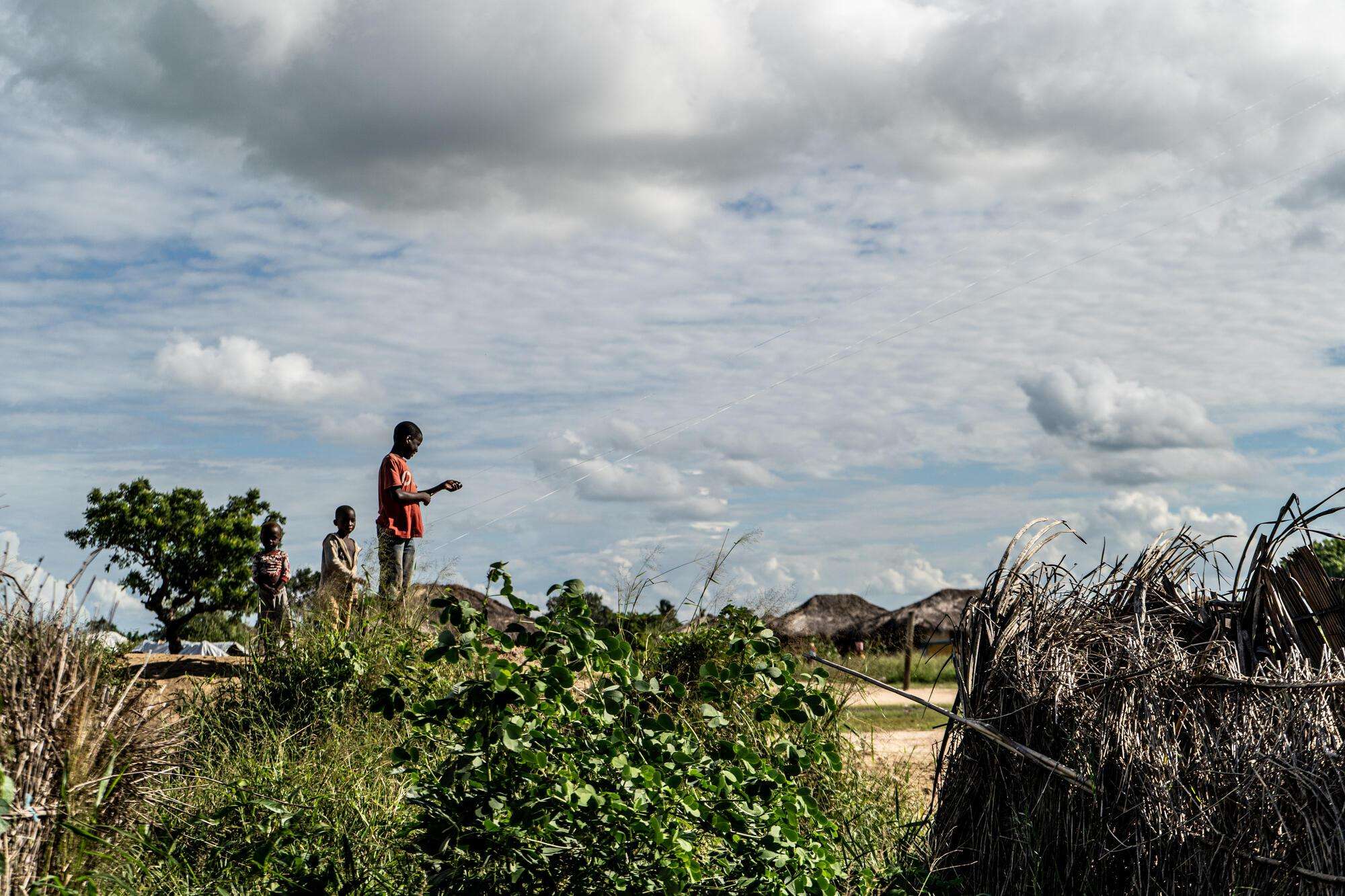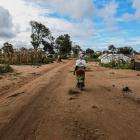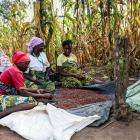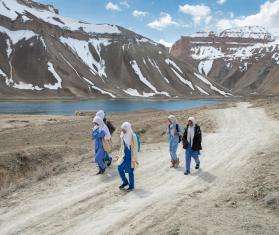In April, we responded to an outbreak in Nacala Porto, Nampula province, by implementing measures to improve infection prevention and control in a cholera treatment unit, constructing a temporary morgue and emergency waste zone, and installing water and sanitation facilities. We also conducted staff training.
Between February and March last year, following heavy rains in Maputo province, the Umbeluzi River burst its banks, causing intense flooding. We immediately deployed teams to distribute hygiene kits and tents to displaced people and support medical, water, and sanitation activities.
Assisting people affected by conflict
The Cabo Delgado conflict has had a significant impact on people’s mental health, with many traumatized after witnessing murders, kidnappings, and sexual violence. Families returning to their areas of origin often have the same needs as those who remain displaced, as they have lost their homes and livelihoods. We rehabilitated health centers that were destroyed by the conflict, supporting the Ministry of Health to re-open general health centers. In Moçimboa da Praia, we opened a transitory provincial hospital in a closed school, as the hospital was destroyed.
MSF has been working in Cabo Delgado since 2019, delivering health care to people displaced by the conflict or returning to their homes through community-based services, fixed and mobile clinics, and support to health centers and local hospitals in Macomia, Mocimboa da Praia, Mueda, Muidumbe, Palma, and Nangade districts. We offer a wide range of services, including general and specialized health care, mental health support, sexual and reproductive health care, health promotion, and patient referrals. We also work to ensure access to safe water and effective sanitation and waste management and distribute essential relief items, such as soap, jerry cans, and cooking kits.
We are also supporting the Ministry of Health to restart HIV/tuberculosis programs disrupted by years of conflict and to improve the delivery of health services by increasing biomedical, laboratory, and pharmacy management capacity. In Macomia, Mueda, and Moçimboa da Praia, our teams support general health care and 24-hour emergency services, including maternity care and ambulance referrals to Pemba provincial hospital.
Treating diseases
In Beira, Sofala province, we offer sexual and reproductive health care, including safe abortion care, HIV testing, and treatment for vulnerable and stigmatized groups, such as adolescents, sex workers, transgender women, and men who have sex with men. We also provide care for patients with advanced HIV disease at health care facilities in the city.
Our team in Beira Central hospital has been working to ensure early diagnosis and treatment to improve the management of opportunistic infections in patients with advanced HIV. Since 2021, we have extended this project to 10 health centers in Beira, where we provide support for sexual and reproductive health care, and diagnosis and treatment of advanced HIV disease, and mentor Ministry of Health staff.
In Mogovolas district, Nampula, we have been working with the Ministry of Health since 2022 to improve access to health care for vector-borne, water-borne, and neglected tropical diseases, focusing on severe malaria and other febrile illnesses, schistosomiasis, lymphatic filariasis, and scabies. We have mobile teams working in general health care facilities and communities, as well as a laboratory.
In general health care facilities, we conducted training and mentoring for Ministry of Health staff. In communities, we organize health promotion and case finding and facilitate peer support groups. We also offer physiotherapy to patients with chronic lymphedema of the limbs, one of the consequences of lymphatic filariasis, a disease caused by infection from parasites. Meanwhile, a laboratory team in Nametil supports blood bank management and diagnosis.










